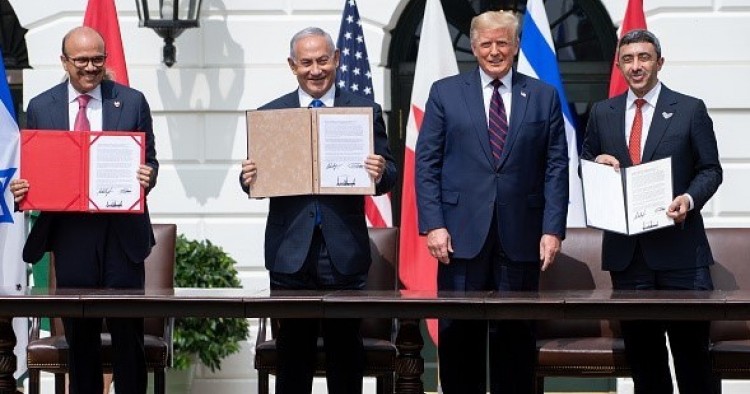

The term "Abraham Accord" has gained substantial recognition in international diplomacy and geopolitical discussions. This historic agreement, often heralded as a breakthrough in the Middle East, has sparked widespread interest and intrigue. In this comprehensive article, we delve deep into the intricacies of the Abraham Accord, shedding light on its origins, significance, impact, and what it means for the future of the Middle East.
The Abraham Accord, signed on September 15, 2020, represents a significant diplomatic achievement that emerged from the collaborative efforts of the United States, Israel, and the United Arab Emirates (UAE). This landmark agreement marked the establishment of formal diplomatic relations between Israel and the UAE, marking a historic departure from the longstanding Arab-Israeli conflict.
To fully appreciate the significance of the Abraham Accord, one must consider the broader historical context of the Middle East. The region has long been marred by political tensions, territorial disputes, and conflicts rooted in ideological differences. In this context, the Abraham Accord represents a promising path toward regional reconciliation, fostering new diplomatic relations in a historically volatile region.
The Abraham Accord has had far-reaching implications on various aspects of Middle Eastern geopolitics and diplomacy. It's important to note that this agreement not only normalized relations between Israel and the UAE but also laid the groundwork for other Arab nations to follow suit. The following are some key areas where the Accord has made an impact:
The establishment of diplomatic ties between Israel and the UAE opened up a world of economic opportunities. Both countries have benefited from enhanced trade relations, increased investment, and technological collaboration. This newfound economic synergy has the potential to reshape the Middle East's economic landscape.
The Abraham Accord has contributed to the overall security and stability of the region. It has encouraged cooperation on matters of defense, intelligence sharing, and counterterrorism efforts. This collaborative approach has the potential to deter common threats and promote regional peace.
The accord has also paved the way for numerous humanitarian initiatives, promoting cultural and people-to-people exchanges. Educational and cultural programs, as well as tourism initiatives, have flourished as a result of the improved relations between the UAE and Israel.
While the Abraham Accord has garnered widespread support and admiration, it is not without its fair share of challenges and criticisms. Some critics argue that the accord may overlook the ongoing Israeli-Palestinian conflict, potentially hindering the prospects for a comprehensive and lasting peace in the region. Moreover, the Accord has faced opposition from some regional actors who remain wary of its implications.
The Abraham Accord stands as a testament to the power of diplomacy and cooperation in resolving longstanding conflicts. It signifies a promising shift in the dynamics of the Middle East, setting the stage for more nations to join in recognizing and forging relations with Israel.
In conclusion, the Abraham Accord represents a pivotal moment in Middle Eastern history, emphasizing the significance of diplomacy, collaboration, and the pursuit of regional stability. As it continues to shape the course of the Middle East, we can only anticipate further developments, cooperation, and challenges on the path to lasting peace and prosperity in the region.
Is this content hitting the mark for you? If so, consider supporting my work—buy me a virtual coffee! ☕ Your support keeps the ideas flowing. Thanks so much! 🙏 Please Contribute via GoGetFunding
Gold prices reached an all-time high on Thursday, surpassing $3,000 per ounce, as investors, alarmed…
The ongoing negotiations between the US and Ukraine regarding a minerals deal have hit a…
Fitness expert Jillian Michaels is leading the charge for a massive overhaul of the American…
Russia has officially presented a set of peace demands to the United States in an…
In a bold new tax reform proposal, President Donald Trump is advocating for a significant…
A chilling incident recently unfolded on the streets of Britain, highlighting the growing concern over…